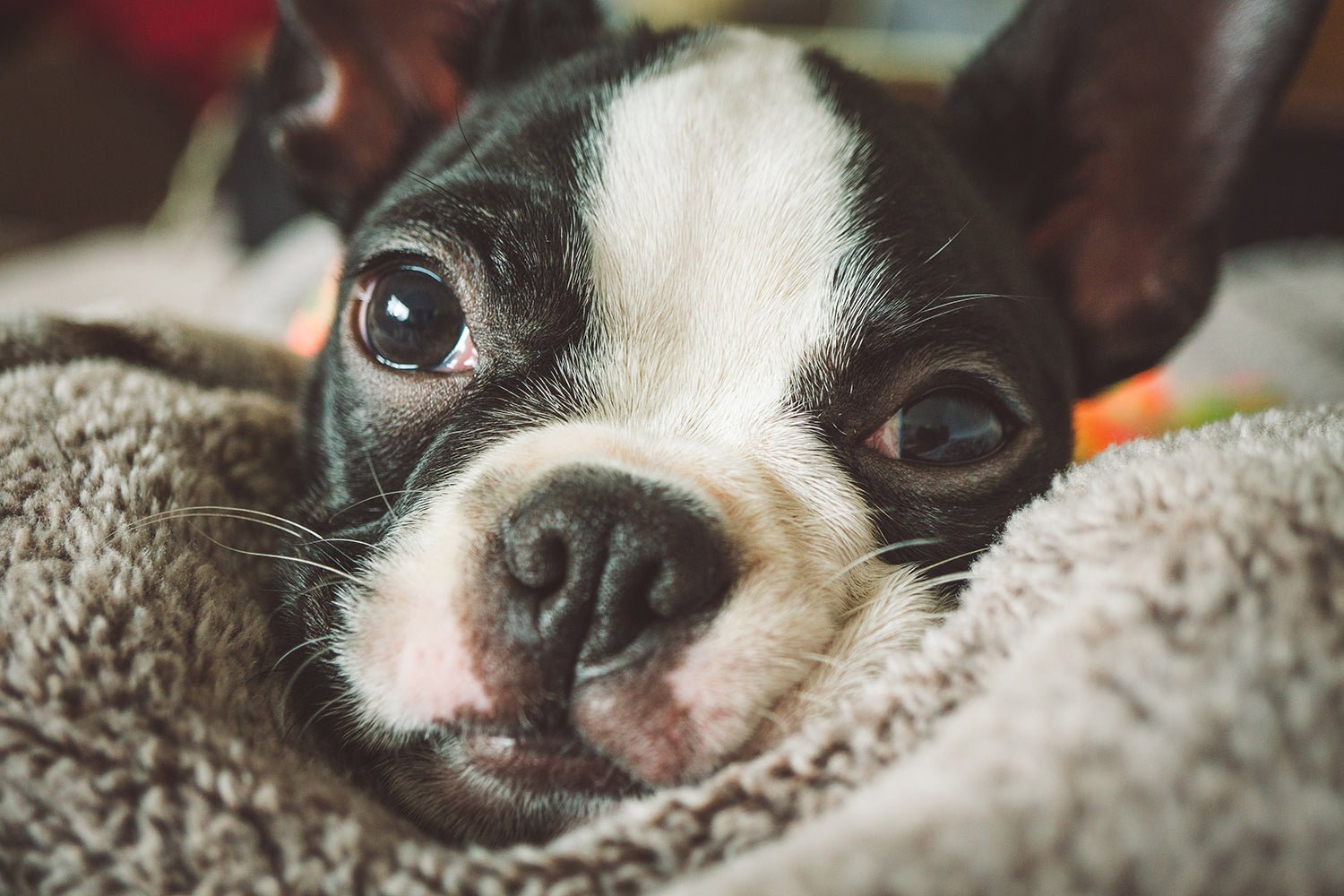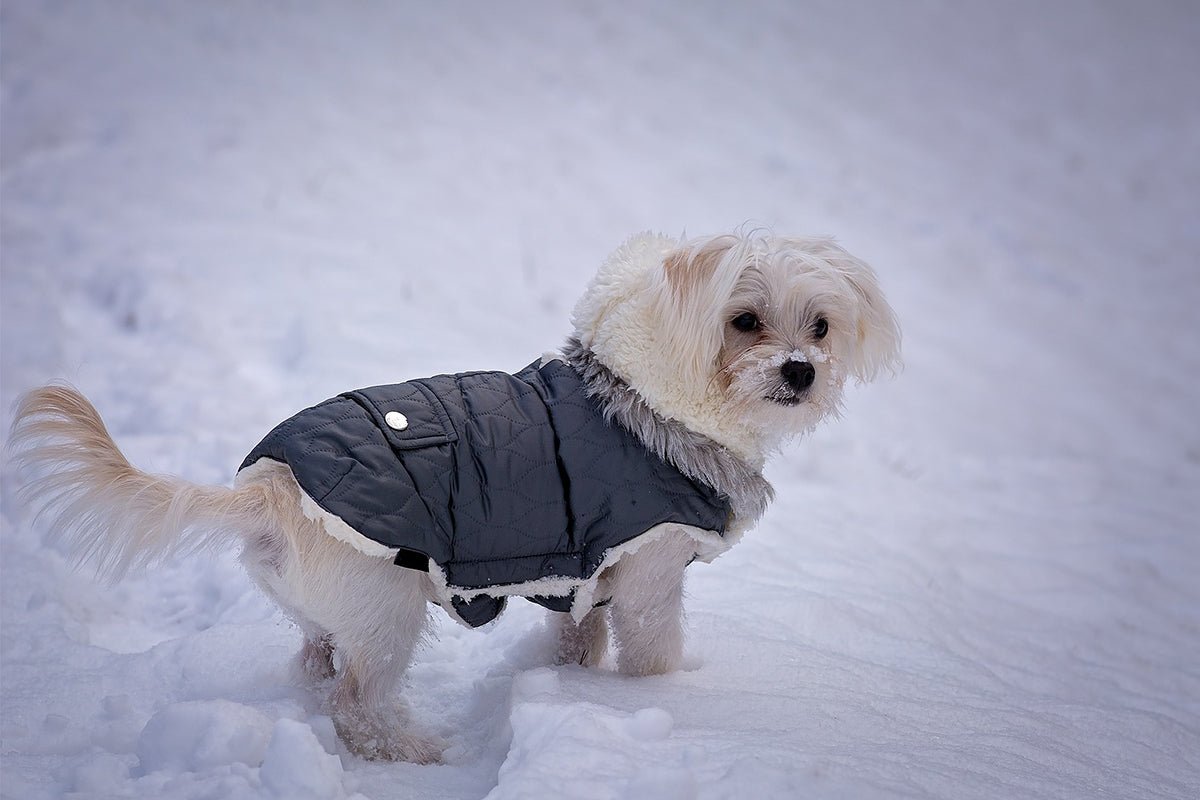
Would you like to welcome a dog to your family and are you looking for the right breed? Or have you already decided on a certain breed but you are not sure whether this dog really suits you? There is a lot to consider before you decide on a particular breed of dog. Find out what you need to think about before getting a dog and which breed corresponds best with your lifestyle.
A few basic ideas in advance
If you want to share your life with a dog, ask yourself some basic questions beforehand:
- Do I have enough time for a dog?
- Can I financially afford a dog?
- Is it even permitted and possible to keep animals in my home?
- Am I ready, in the best case, to spend my life with a furry friend for the next 10-15 years and to take care of them in the best possible way?
- Can I plan my vacations so that I take the dog with me or that he is well looked after during my absence?
In addition, a dog must be fed a balanced diet, walks become your daily routine, annual visits to the doctor are part of the to-do list, and the animal should not be left alone for too long.
If, after careful consideration, you decide to acquire a dog, inform yourself about breed-specific traits in order to find the right dog for you and your family. Despite their relationship to the wolf, today there are over 400 dog breeds that are very different from one another. There are large, medium-sized and small dogs, long hair in need of care or short stubborn bristles, breeds featuring a stubborn character or are relaxed, and everything inbetween.
In addition, prospective dog owners should ask themselves whether the preference for a certain dog breed also corresponds to their own character. It becomes difficult, of course, when several temperaments have to be taken into account, as is usual within a family. A well-balanced and quickly adapting dog is better suited than a shy one.
But besides the dog’s character traits, your personality and living conditions are crucial to consider. If you are more of a solitary type and spend a lot of your free time with outdoor activities, then a running and hunting dog breed is just right for you. You can work out each other and grow together athletically.
If you live in the city in an apartment building with lots of stairs and no elevator, a Golden Retriever is not very suitable, as this breed is particularly predestined for joint problems. If you have a preference for herding dogs like the Australian Kelpie, then you should also be able to offer this intelligent animal his necessary mental and physical workload.
As you can see, there are many aspects to consider when deciding for a dog. It can be tricky to find just the right dog for you. Don’t stop at your decision on appearance and preference for large or small dog breeds, but above all, consider what you can offer the dog and what circumstances the dog needs to adapt to.
We have put together a questionnaire that should offer an orientation as to which breed best suits you and your circumstances.
Which dog is right for me?
- How much space do I have?
- Do I live in the city or in the country?
- How much time can I invest in care, education, and entertainment every day?
- How long would the dog be alone per day / per week?
- How much money can I spend on the dog?
- Am I a beginner or an experienced dog owner?
- Are any elderly people or small children living with me?
- What tasks should the dog perform?
- Will he be confronted with strangers often?
- Should it be a puppy or an adult dog?
Where can I find out more about breed portraits?
To find out which dog is best for you and your circumstances, you can ask dog owners about their experience. Many pet owners with a wide variety of dog breeds congregate at dog parks, especially in the morning and evening hours. Join them and make contact with pet owners, and you will not only learn a lot about the different breeds, but you may have already met a new friend for your dog.
If you prefer professional help in choosing the right dog breed, make an appointment at your local animal shelter or with experienced breeders. You may be able to take a look at dogs on site.
In addition to taking our questionnaire, educate yourself about your favorite breeds in advance. For an initial overview, we have assembled some info on a few dog breeds and their character traits.
Dog breeds for beginners and family dogs
“Beginner dogs” are characterized by the fact that they are usually balanced, family-friendly and like to spend a lot of time with their people. They are adaptable, easy to train, and rarely aggressive, they have a lovable nature and want to please their owner. The most popular beginner dogs are primarily Golden and Labrador Retrievers. They are considered to be particularly family-friendly, but require a lot of attention and activity.
The German boxer is also well suited as a beginner dog. He is very intelligent and easy to train, adaptable and not aggressive. However, he can sometimes be stubborn and needs a lot of movement and consistent leadership. Smaller dog breeds for beginners include the laid-back Pug, the Havanese, one of the oldest dog breeds in Europe, and the Gentleman Cavalier King Charles Spaniel. They are also particularly easy to care for and have a relaxed character. Nonetheless, even beginner dogs need a lot of care, attention and exercise.
Hunting dogs or sled dogs for active sports enthusiasts
Dogs are very active animals that like to be in nature, but not every breed is suitable for endurance sports and extensive jogging tours. Larger dog breeds tend to have a particularly strong urge to move and want to be properly challenged. They are characterized by a robust physique and are very agile, fast and strong. Rhodesian Ridgebacks, German Shorthaired Pointer, the Siberian Husky and Weimaraner are such active dog breeds and require a lot of physical and mental exercise. The Beagle, the Lakeland Terrier and the small but very energetic Jack Russell are ideal for long excursions in nature, various dog sports such as agility training or for hunting or driving. They can also be kept busy with retrieval training, but need a pack leader and strict instructions. These dog breeds are known for their vigilance and loyalty to humans.
Quiet dog breeds - relaxed and balanced
In contrast to the active hunting dogs, there are also some cozy and calm dog breeds. They are mainly characterized by a balanced mind, gentleness and a pronounced need to cuddle with their master or mistress. The Irish Wolfhound, the St. Bernard, the Eurasier and the Basset Hound, are very relaxed dogs. They radiate calm, are very adaptable and people-oriented. They do not shy away from unfamiliar situations, which may be due to their pronounced self-confidence. If you’re looking for a smaller dog, you may consider the Chinese Crested Dog or the Cavalier King Charles Spaniel.
Shepherd dogs - loyal companions with high standards
Shepherd dogs are work animals, holding the herd together and collect possible stragglers. Herding dogs are intelligent, very vigilant and submit to their pack leader. They are considered very loyal companions who, however, require a lot of activity due to their breed character. If the dog cannot live out its instinctive herding behavior, it must be supported mentally and physically in other ways. Otherwise, these dogs will become very unhappy and the bond between owner and dog can suffer greatly. Despite their quick-wittedness and eager learning, herding dogs are not suitable for inexperienced owners or families with children. The most popular shepherd breeds are the Border Collie and Bearded Collie, the sporty Australian Kelpie, the watchful German Shepherd, the very intelligent Australian Shepherd or the long-haired Collie Rough.
Small breeds
The small dog breeds are particularly popular, especially in cities, probably based on the assumption that smaller dogs require less space, grooming, and most importantly, exercise. But especially concerning exercise, make no mistake: once your little dog has moved in with you, his surprising urge to move may come to light. A Chihuahua clearly needs less space than a Great Dane, but a small breed of dog may require significantly more exercise than larger dog breeds. While Chihuahuas are cuddly and loyal companions, they are also very lively and restless.
Jack Russell, Beagle and Dachshunds have become popular family and companion dogs, but because of their hunting instinct, they still have a lot of power. Other small dog breeds are the stubborn Lhasa Apso, the sensitive Pug, the popular French Bulldog and the courageous and daring Yorkshire Terrier.
Conclusion
At first glance, owning a dog sounds like gaining a loyal companion, lots of fun, joy and little boredom. However, there is much more to dog ownership: walks even in bad weather, doctor's appointments, which can be costly, as well as the time necessary to occupy and care for the dog. While some dog breeds require lots of effort and training, there are also dog breeds that need significantly less.
That’s why you need to carefully determine ahead of time which dog will suit you, your family and lifestyle.



